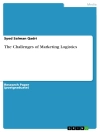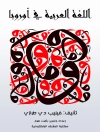This book explores the way stories that emerge from the garden and are consumed in the digital space can become a nourished method of environmental communication. Mickelburgh seeks to understand what happens when some women speak, write, and photograph their private, everyday garden lives, and share those stories with a public, global, digital world. The garden is the place people get deeply acquainted with. This book considers Australian ecofeminist Val Plumwood’s urging for a “deep acquaintance with some place, or perhaps group of places” to discover a communicative “language of the land’’. The online world brings us into closer vicinity to this humble space, and yet a distance remains. This distance—the in-between—is the space where the possibility of communication lies. In keeping with its humble focus, this book asks simple questions of the garden. What happens when Australian women gardeners tell stories of community, care and compassion in a space that is both material and digital? Does digital soundwork, sightwork, and wordwork about gardens equate to communicative groundwork? This book tries to answer these questions by examining the digital stories of Australian women’s gardening lives. It aims to engage the reader through its emphasis on showing rather than telling the way affective communication circulates in the physical place, memories, the body, and the digital realm, in conversation with the many women writers and feminist scholars concerned with the entanglement of feminism, writing, the environment, and communication.
Table of Content
1. Communication on common ground: An alternative paradigm.- 2. A Matter of Method: Writing the garden as a method of ecofeminist inquiry.- 3. Pip Podcasts: When telling becomes listening.- 4. Urban Food Street: A vision of community connection.- 5. The Planthunter: Writing the world as garden.- 6. A ‘Not’ Conclusions.
About the author
Dr Renée Mickelburgh is an Associate Lecturer in Strategic Communication at the University of Queensland’s School of Communication and Arts. With a specific focus on gender equality and environmental concerns, Renée has had success as a journalist and communications practitioner, educator, and researcher. At the heart of Renée’s work is a strong commitment to listening and empowering the communities and organisations she works and researches with.












